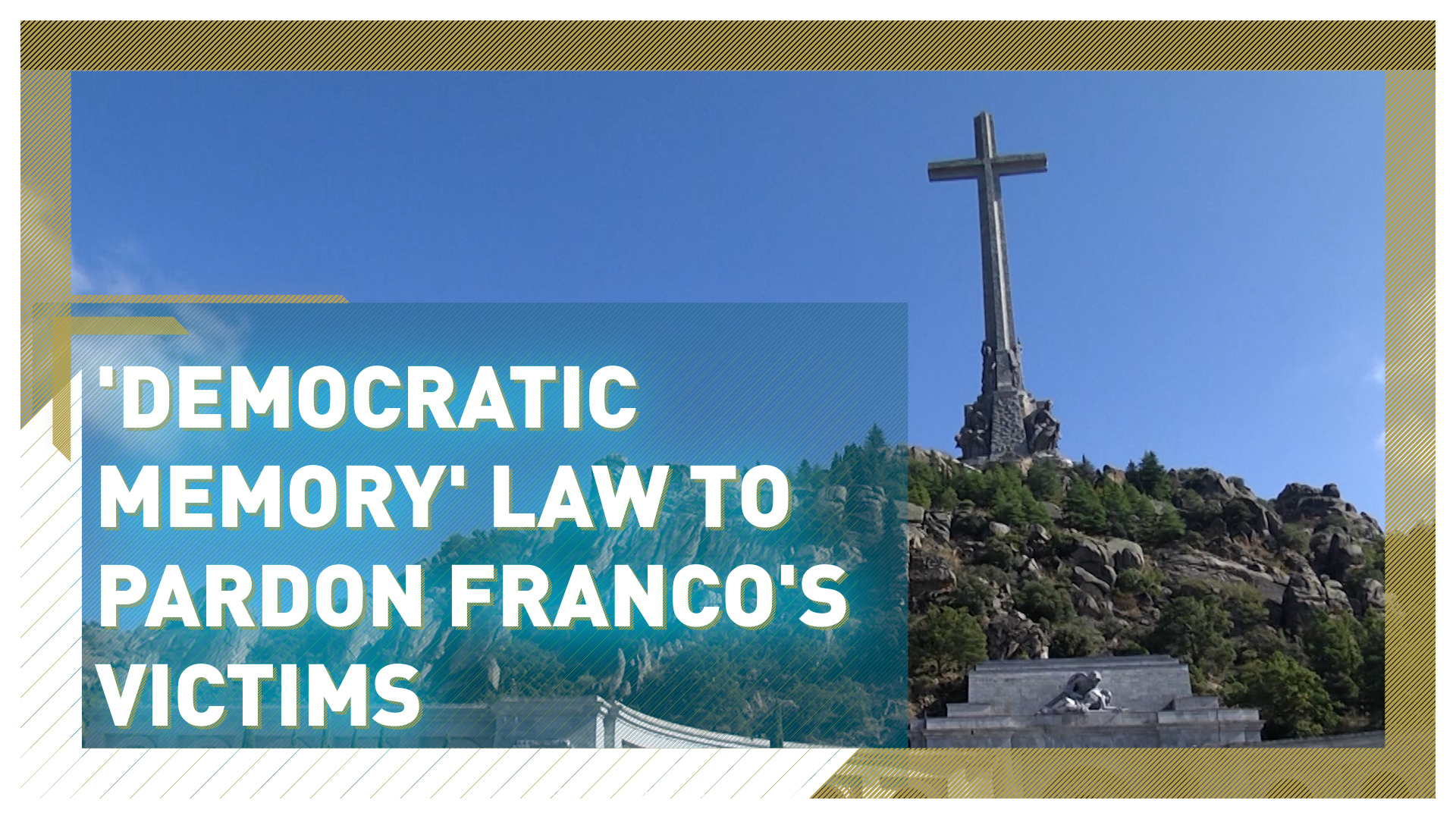02:35

A new law designed to bring justice to the victims of the Spanish civil war and the resulting dictatorship of General Francisco Franco has come into force in Spain.
The country's Socialist Prime minister Pedro Sanchez said he hoped to "settle Spanish democracy's debt to its past".
However, right wing parties claim the move will only serve to reopen old wounds.
READ MORE
What is the European Political Community?
Huawei 'disappointed' as UK steps up ban
China-UK Bridge Builders: James Trapp
The Democratic Memory law tackling the legacy of the 1939-1975 dictatorship and the three-year civil war that preceded it was published in the official gazette.
It will annul all convictions for political, ideological and religious beliefs or sexual orientation.
Groups representing the families of the victims have given the bill a cautious welcome.
In a bid to heal the wounds, left and right-wing parties agreed on a Pacto del Olvido (Pact of Forgetting) in 1977 to avoid confronting a painful past and to ease the transition into democracy.
The democratic memory bill may not even have enough time to make an impact. And the main opposition, the centre right PP has promised to repeal the law if it wins the next election due to be held in 2023.

Spanish Prime Minister Pedro Sanchez during a visit to a mass grave containing the remains of people killed by late Spanish dictator Francisco Franco's forces during the Civil War. /Fernando Calvo/Reuters
Spanish Prime Minister Pedro Sanchez during a visit to a mass grave containing the remains of people killed by late Spanish dictator Francisco Franco's forces during the Civil War. /Fernando Calvo/Reuters
Franco's legacy
However, Franco's legacy remains a divisive issue in Spain, especially following the rise of the hard-right Vox party in the past few years.
With the new bill, the state will also promote the search and exhumations of victims buried in mass graves, which until now were handled by memory associations.
Government estimates point to 114,000 civilians who disappeared, presumably killed by Franco forces during the war and throughout the dictatorship.
Earlier this month, several families received the remains of their loved ones from a mass grave in the eastern city of Paterna, where volunteers have so far discovered a total of 154 such graves, exhuming 1,200 victims.
Up until July, the government had given the green light to 448 exhumation projects, including one in central Valladolid where associations hope to recover 160 victims.
Studies of the legacy of Francoism will be part of the compulsory school program and required for seekers of civil service jobs, under the new law.
Francoism was included in the school history program but rarely addressed in detail until now.
Carles Vallejo, a former trade unionist who fled into exile in 1971 after being convicted of unlawful assembly and propaganda, hopes such teaching will raise awareness in younger generations.
"This could be the antidote to the rise of neo-fascism, post-fascism, or the extreme right in Europe," he said, lamenting that Spain had not provided such education earlier to explain the dangers of Francoism and other dictatorships and how they curtail rights and freedoms.
Source(s): Reuters